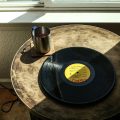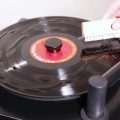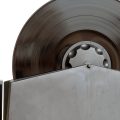With the vinyl resurgence in full swing, properly caring for your cherished records is critical. But when it comes to cleaning methods, many myths still shroud the truth. Should you invest in a serious cleaning machine or simply rely on DIY options? Let’s cut through the misconceptions to demonstrate precisely how specialized record cleaning machines provide scientifically proven cleaning and fidelity benefits that no manual approach can match. Let the facts speak for themselves.
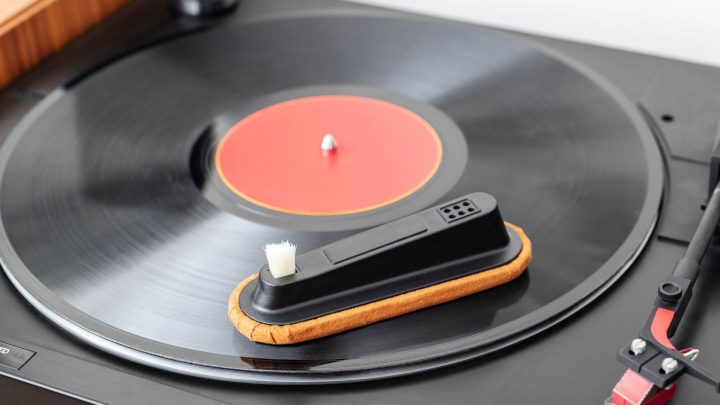
Table of Contents
- Understanding Record Cleaning Machines
- Types of Record Cleaning Machines
- Comparing Record Cleaning Solutions
- How Much Should You Spend on a Record Cleaning Machine?
- Top Record Cleaning Machines on the Market
- Maintenance Tips for Record Cleaning Machines
- The Impact of Clean Records on Sound Quality
- So Should You Invest in a Serious Cleaning Machine?
- Is Record Cleaning Machine Worth It FAQs
Understanding Record Cleaning Machines
Record cleaning machines utilize various technologies to effectively remove debris, residue, and contaminants from vinyl records. By carefully loosening and extracting surface impurities, these devices aim to restore clarity to the audio quality without causing any damage to the delicate grooves.
Vacuum Suction
Most record cleaning machines rely on vacuum suction to literally suck out dirt, dust, oils, and other gunk out of the microgrooves. Powerful vacuum motors create strong suction action along the entire surface of the vinyl record as it rotates on a platter or cleaning pad. This pulls foreign particles up and away from the grooves for safe removal. The suction strength can often be adjusted based on the cleaning needs.
Some machines also utilize vacuum suction on both sides of the vinyl simultaneously, allowing for quick and comprehensive cleaning. Dual vacuum suction ensures no groove is left untouched.
Cleaning Solutions
In addition to vacuum suction, record cleaning machines dispense specialized cleaning fluids onto the vinyl to help dislodge debris and break down contaminants. The solutions lift dirt and oils away from the grooves and hold them in suspension for easy vacuuming.
Cleaning fluids are designed to be gentle enough not to damage the vinyl or leave behind any residue. Many are alcohol-free and use deionized water to prevent mineral deposits. The correct amount of solution is dispensed automatically according to the cleaning cycle.
Rotating Platters
As suction and cleaning fluids do their work, the record itself rotates on a dedicated platter or cleaning pad. The rotation allows the fixed vacuuming and spraying mechanisms to cover the entire surface area of the vinyl.
Most machines will rotate the record numerous revolutions during a single cleaning cycle for the most thorough results. The rotation speed and direction can generally be set based on the requirements. Some high-end models even allow for manual rotation control via a hand crank.
Automated Cycles
Record cleaning machines streamline the entire washing process through pre-programmed cleaning cycles. At the touch of a button, they automatically dispense the cleaning solutions, activate the necessary vacuums, rotate the record, and more—all with proper electronic sensing and timing.
Cycles will repeat the cleaning stages multiple times for set durations to ensure a deep clean. The stages target everything from loosening dry debris to extracting oily residues. Some machines feature a wide range of custom cycles based on vinyl condition.
Audio Grade Components
From vacuums to internal wiring, record cleaning machines utilize audio grade materials that will not introduce any interference or static into the vinyl. Critical sound preservation relies first on a pristine cleaning process.
High-fidelity copper tubing often replaces plastic hoses to maintain the integrity of the audio signal. Special vacuum nozzle materials eliminate potential static buildup as well. The platter bases also commonly consist of resonance-dampening compounds.

Types of Record Cleaning Machines
When considering investing in a record cleaning machine, one of the first decisions is whether to choose a manual or automatic model. Beyond that basic delineation, there are also further options like vacuum vs. ultrasonic technology. Understanding the pros and cons of each can help determine the best fit.
Manual vs. Automatic
Manual cleaning machines require the user to perform more hands-on work during the washing process. This includes scrubbing the record by hand, moving the vinyl into place, operating rotating handles, and more physical engagement.
Automatic cleaners handle the entire cleaning sequence for you with the touch of a button. They automatically dispense fluid, spin the record, vacuum debris, and shut off—allowing for quick, hands-free operation.
Manual Pros
- Lower cost of entry
- Often quieter operation
- Provides more physical inspection
Automatic Pros
- Total convenience
- Consistent, programmed cycles
- Can clean multiples records at once
So while manual cleaning provides greater tactile control, automatic models trade that for total convenience and efficiency.
Vacuum vs. Ultrasonic
Vacuum cleaning relies on targeted suction to literally vacuum dust, oils, and debris out of the record grooves. Powerful vacuums extract particles and deposit them safely into a waste tank.
Ultrasonic cleaning utilizes high frequency sound waves transmitted through a cleaning solution to agitate and dislodge contaminants. The freed particles then get flushed away without vacuuming.
Vacuum Pros
- Directly sucks particles out
- Works on extremely dirty records
- Cleans deeper into grooves
Ultrasonic Pros
- No physical contact with grooves
- Handles delicate or damaged vinyl
- Can also clean cassettes, DVDs, etc
So while ultrasonic cleaning is gentler, vacuum models provide more muscular grime removal from deep in the grooves via suction.
Hand Operated
Some of the most affordable record cleaning options are small hand operated devices. Resembling a large pad, they require manually rotating a record while scrubbing with a cleaning brush and solution.
Pros
- Low cost way to start cleaning
- Portable for on-the-go use
- Allows physical inspection
Cons
- Very labor intensive use
- Limited cleaning power
- No powered vacuuming or drying
Comparing Record Cleaning Solutions
When it comes to keeping your vinyl record collection in pristine condition, record cleaning machines offer clear advantages over DIY cleaning methods. From effectiveness to convenience, cleaning machines outperform manual approaches across the board.
Cleaning Effectiveness
DIY vinyl cleaning typically involves manually scrubbing records with a brush, cloth, or pad. Without powered vacuuming though, debris can get pushed around rather than removed. DIY cleaners also lack an effective way to rinse residues.
In contrast, cleaning machines combine deep cleaning fluids with calibrated vacuum suction that literally sucks contaminants out of the grooves. Automated wash cycles also rinse each record multiple times for a more thorough clean.
So when judging pure cleaning effectiveness, machines achieve far superior debris, dust, and residue removal versus manual techniques.
Process Convenience
DIY cleaning requires manually scrubbing the vinyl, rinsing off solution, air drying the record, inspecting for issues, and repeating any problem areas. This hands-on process tends to be messy and time-consuming.
Cleaning machines handle everything automatically with the press of a button. They wash, vacuum, rinse, and dry multiples records without any physical effort. The automated process saves huge amounts of labor.
So cleaning machines radically improve the convenience factor over traditional hand cleaning.
Cost Considerations
DIY cleaning supplies like brushes, cleaning fluid, pads, gloves, and towels can cost $30-$50 to gather. However these tend to be one-time purchases. The main ongoing cost is your valuable time.
Cleaning machines carry more upfront investment depending on the model, but can cost between $200 to $500+. However, they will save massive amounts of time over the long run – allowing cleaning in batches.
When weighing lifetime costs, cleaning machines often provide far more value from the compound time savings, despite higher initial purchase prices. Not to mention cleaner records and preserved audio quality.
Audio Fidelity
Since DIY approaches never reach the contaminant removal effectiveness of cleaning machines, vinyl cleaned this way retains more residual debris jammed into the grooves.
By extracting far more gunk through automated vacuuming, cleaning machines restore fidelity and dramatically lower surface noise. Your ears will appreciate the difference.

How Much Should You Spend on a Record Cleaning Machine?
When preparing to invest in a serious vinyl cleaning machine, an obvious question arises: how much should I budget? Vinyl cleaning devices range widely in price – from under $100 to over $1500. However, more dollars generally buy more convenience, efficiency, and cleaning performance. Here is an overview of pricing tiers and key features.
Entry-Level Cleaners: $100 – $300
This tier encompasses very basic manual cleaning machines. They provide the core cleaning functions through manual scrubbing and vacuum suction, but lack automation and added capabilities.
Key Features
- Hand-powered record rotation
- Manual fluid application
- Basic vacuum wand
- Small footprint
While very affordable, entry-level units require more physical effort per clean. But they can still outperform DIY approaches.
Mid-Range Cleaners: $300 – $700
A step up, mid-range cleaning machines introduce handy automation to improve process efficiency. They clean multiple records per session and may include extras like drying.
Key Features
- Automatic rotation
- Programmable cleaning cycles
- Integrated fluid dispensing
- Inline vacuuming
- Some drying capability
Mid-range models deliver automation to cut cleaning time while still keeping costs reasonable.
High-End Cleaners: $700+
Premium cleaning machines offer advanced automation, commercial-grade vacuums, and versatility for discerning vinyl enthusiasts. They provide comprehensive, set-and-forget record cleaning.
Key Features
- Industrial vacuum systems
- Multi-stage cleaning programs
- Automated fluid dispensing
- Inline cleaning & drying
- Large capacity
While premium models demand serious budgets, they deliver unmatched automation and cleaning potency for mint condition vinyl.
Top Record Cleaning Machines on the Market
With the growing resurgence of vinyl, more audio companies are introducing serious vinyl cleaning devices to help collectors preserve pristine sound quality. Models now range from basic manual units to advanced automated systems. Here are some of the top options defining the market.
Klaudio KD-CLN-LP200
For an advanced fully automatic cleaner with smart features, the Klaudio KD-CLN-LP200 hits a sweet spot. It delivers commercial-grade cleaning power with handy usability.
Key Features
- Heated drying
- Ultrasonic cleaning mode
- App connectivity & alarms
- Commercial vacuum pump
With flexibility between ultrasonic and vacuum suction modes, plus intelligent notifications, the KD-CLN-LP200 balances automation with control.
Okki Nokki Record Cleaning Machine
The Okki Nokki cleaner offers a more hands-on and compact form factor while still packing cleaning muscle. It tackles dry vacuuming and scrubbing duties with aplomb.
Key Perks
- Small footprint
- Easy hand-powered operation
- Industrial vacuum pickup
- Effective scrub pads
For a manual option with commercial cleaning efficacy, Okki Nokki gets the job done.
Record Doctor VI
A step up in automation from manual units, Record Doctor models provide effective entry points into powered cleaning. The Record Doctor VII adds handy usability to quality vacuuming.
Notable Features
- Inline cleaning pads
- Automatic rotation
- Adjustable vacuum pickup
- Affordable pricing
Record Doctor VI hits the automation sweet spot for an easy automated upgrade over DIY approaches.
- Cleans dust, dirt, and grime from record grooves
- Helps prolong the life of your LPs and maintain their value
- Powerful high-performance vacuum motor
- Cleaner records sound better than dirty records.
Prices pulled from the Amazon Product Advertising API on:
Product prices and availability are accurate as of the date/time indicated and are subject to change. Any price and availability information displayed on [relevant Amazon Site(s), as applicable] at the time of purchase will apply to the purchase of this product.
Maintenance Tips for Record Cleaning Machines
To keep your vinyl cleaner operating at peak efficiency for years to come, establishing regular maintenance habits is key. From cleaning cycles to component care, simple preventative steps ensure maximum uptime.
Run Empty Cleans
Over time, debris and residue can build up inside the fluid lines and tanks of cleaning machines. Running periodic empty cleaning cycles with just water helps flush the system to prevent potential clogs or contamination.
Aim to perform empty cleans every 10-20 record washes. The process keeps components crystal clean for unimpeded fluid flow.
Check and Change Filters
The filters inside a record cleaning machine bear the brunt of extracting debris and dust. As filters become saturated, effectiveness suffers.
Checking filters monthly and changing them every 6-12 months maintains powerful vacuum suction strength. Clogged filters can’t adequately protect vacuum motor health.
Inspect and Replace Parts
Key components like vacuums, pumps, and internal tubing wear down over continual use. Visually inspecting for cracks or leaks around the 50-100 hour usage mark can preempt bigger failures.
Being proactive about replacing parts before complete breakdowns saves cleaning effectiveness and more costly future repairs. Establish a replacement schedule.
Brush and Clean Exposed Areas
For manual cleaning machines, routinely bush off and wipe down external scrubbing brushes, pads, and waste fluid trays after each session. This stops compound buildup which hampers cleaning performance.
Likewise, inspect vacuum nozzle area on powered models, using included brush tools to dislodge clingy debris around intake openings.
Ask About Refurbishing Services
For older cleaning machines with very high usage hours, checking manufacturer support for potential refurbishing services can restore like-new performance.
Complete factory overhauls replace worn parts, update components, and thoroughly clean systems from top to bottom – often for less than a new machine. Refurbishing rewinds the clock.
The Impact of Clean Records on Sound Quality
When it comes to vinyl records, pristine cleanliness translates directly into enhanced audio performance. The sensitive physics of a needle traveling through microscopic record grooves makes even tiny particles detrimental to fidelity. Cleaning machines maximize quality by extracting such contaminants.
The Groove Ecosystem
During playback, a phono cartridge’s diamond tip attempts to perfectly trace an intricate stereo groove less than 100 microns wide. Any debris and gunk accumulated inside these grooves can impede the stylus’ tracking accuracy.
Foreign particles force the needle to bounce around and skip instead of smoothly following the engraved waveform. This introduces distortion across the audible spectrum – especially in higher frequencies.
Reduced Distortion and Noise
As a vinyl cleaning machine vacuums away built-up dust, smoke residue, skin oils, and other contaminants, the stylus subsequently experiences less interference.
With debris extracted, the needle can more precisely trace the virgin vinyl’s pristine contours. The improved accuracy directly translates into lowered harmonic distortion and intermodulation noise.
In a sense, cleaning machines restore the record’s original optical clarity – enabling the cartridge to better “see” the grooves. Fidelity improves as distortion diminishes.
Preserving High Frequency Content
Due to phono cartridge physics, high frequency audio content is more susceptible to loss by debris than lower frequencies. Any particles create more tracking loss in high pitched sounds.
By eliminating such impediments through deep cleaning, a machine maintains the audio balance across the entire frequency spectrum – preventing muted treble or edgy harshness. The whole tonal palette remains intact.
So in short, cleaning machines optimize sound quality by allowing phono cartridges to more accurately extract the audio engraved during a record’s original master lacquer cutting. Debris removal restores fidelity.
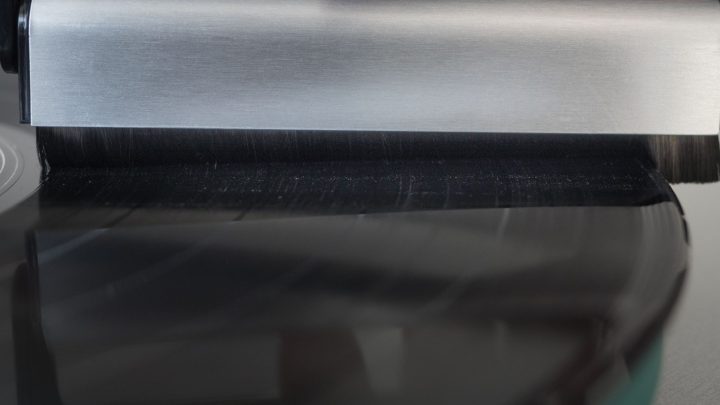
So Should You Invest in a Serious Cleaning Machine?
When it comes to keeping your cherished vinyl collection in great condition while preserving optimal audio fidelity, vinyl cleaning machines provide clear and quantifiable benefits over any one DIY record cleaning method.
If you own over 50-100 records and care about keeping them as pristine as the day they were pressed – or resurrecting that initial luster – then absolutely a cleaning machine is worth it. Budget allowing, a quality cleaning machine is one of the soundest purchases you can make.
Not only will it save you significant time by cleaning full batches rather than one manual scrub at at time, but your ears will appreciate the resulting leap in fidelity and sonic clarity after deep cleaning. Expect even surface noise to diminish significantly.
With proper maintenance habits, a quality vinyl cleaning machine will last for years while breathing new life into your vinyl collection after each clean. The small upfront investment pays continual – and very audible – dividends.
So if pristine records and peerless sound matter, dive into shopping the range of excellent cleaning machines available. Your stylus will glide through microscopic grooves like new during any listening session – and your ears will have a shiny new reason to add new vinyl.
For more tips. check out my blog: How to Clean Vinyl Records.
Is Record Cleaning Machine Worth It FAQs
Do record cleaning machines really work?
Yes, record cleaning machines effectively remove dust, dirt, and grime from vinyl records, improving sound quality by reducing surface noise and pops. They use various methods, such as vacuum suction, ultrasonic cleaning, or manual brushing, to deeply clean the grooves, preserving the vinyl and enhancing the listening experience. Their efficiency varies by model and technology, but overall, they offer a significant improvement over standard manual cleaning methods.
Are ultrasonic record cleaners any good?
They are highly effective, using high-frequency sound waves to remove dirt and contaminants from vinyl grooves without physical contact, minimizing wear. They offer thorough cleaning, reaching into deep grooves where traditional methods can’t, improving sound quality significantly. While more expensive, their ability to meticulously clean and preserve records makes them a valuable investment for serious audiophiles and vinyl enthusiasts.
What is the most effective way to clean vinyl records?
Use a dedicated record cleaning machine, especially ultrasonic cleaners, which deep clean without damaging the grooves. These machines remove dust, grime, and oily fingerprints more thoroughly than manual methods, preserving the record’s quality and improving sound clarity. For those on a budget, manual cleaning with a soft anti-static brush and record cleaning solution is a viable alternative.




